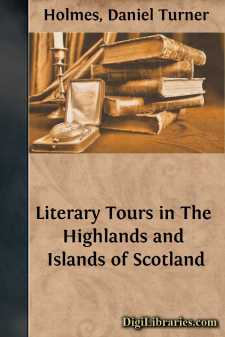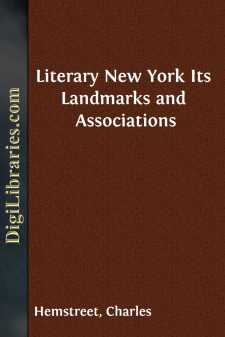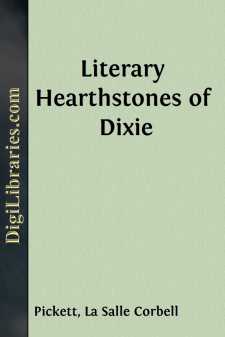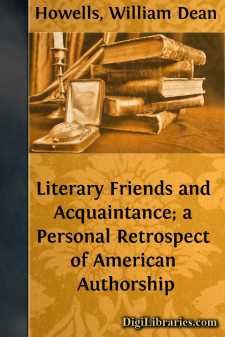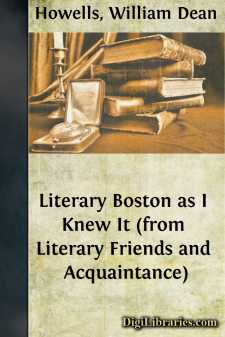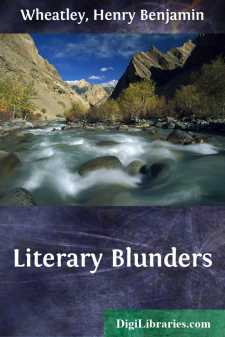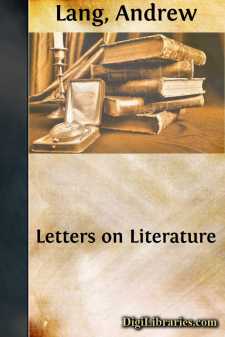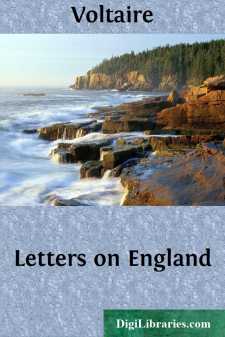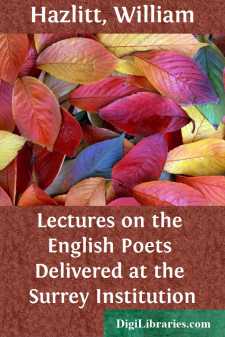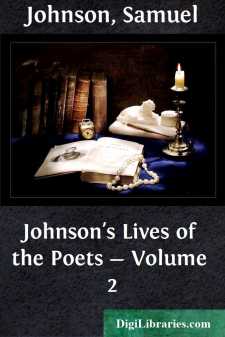Literary Criticism
- American 18
- Ancient and Classical 3
- Asian 1
- Australian & Oceanian 1
- Books & Reading 8
- Caribbean & Latin American 2
- Drama 2
- English, Irish, Scottish, Welsh 49
- European 7
- General 37
- Horror 1
- Humor 2
- Jewish 2
- Medieval 2
- Middle Eastern 3
- Poetry 7
- Renaissance 6
- Russian & Former Soviet Union 1
- Shakespeare 27
Literary Criticism Books
Sort by:
CHAPTER I.INTRODUCTORY. Village libraries—Difficulties of travel—Literary Societies in the Highlands—Gaelic books—Happiness and geniality of natives—Oban to Gairloch—Winter sailing—A crofting village—Horrors of the Minch—Notes on Lewis—Highland doctors—Hotels and anglers—Recent books—Military—Moray Firth—Among the miners—Handloom weaving—Professor Blackie and the...
more...
Chapter IWriters of New Amsterdam THERE is a fashion nowadays of trimming the fronts of brick houses by placing black bricks among the red in such a way as to form odd and unique designs. It is an attractive way of doing, for it varies the staid simplicity of the solid color. But for all it may seem original and new, it is a style that had its beginning long, long ago, even in the days when the...
more...
"THE POET OF THE NIGHT" "I am a Virginian; at least, I call myself one, for I have resided all my life until within the last few years in Richmond." Thus Edgar A. Poe wrote to a friend. The fact of his birth in Boston he regarded as merely an unfortunate accident, or perhaps the work of that malevolent "Imp of the Perverse" which apparently dominated his life. That it...
more...
Long before I began the papers which make up this volume, I had meant to write of literary history in New England as I had known it in the lives of its great exemplars during the twenty-five years I lived near them. In fact, I had meant to do this from the time I came among them; but I let the days in which I almost constantly saw them go by without record save such as I carried in a memory retentive,...
more...
I do not think that such a fact would now move the fancy of the liveliest newspaper man, so much has the West since returned upon the East in a refluent wave of authorship. But then the West was almost an unknown quality in our literary problem; and in fact there was scarcely any literature outside of New England. Even this was of New England origin, for it was almost wholly the work of New England men...
more...
1881. Question 1.—Sound is said to travel about four times as fast in water as in air. How has this been proved? State your reasons for thinking whether sound travels faster or slower in oil than in water. <p 184> Answer(a).—Mr. Colladon, a gentleman who happened to have a boat, wrote to a friend called Mr. Sturm to borrow another boat and row out on the other side of the lake, first...
more...
by:
Andrew Lang
INTRODUCTORY: OF MODERN ENGLISH POETRY To Mr. Arthur Wincott, Topeka, Kansas. Dear Wincott,—You write to me, from your “bright home in the setting sun,” with the flattering information that you have read my poor “Letters to Dead Authors.” You are kind enough to say that you wish I would write some “Letters to Living Authors;” but that, I fear, is out of the question,—for me. A...
more...
by:
Voltaire
INTRODUCTION François Marie Arouet, who called himself Voltaire, was the son of François Arouet of Poitou, who lived in Paris, had given up his office of notary two years before the birth of this his third son, and obtained some years afterwards a treasurer’s office in the Chambre des Comptes. Voltaire was born in the year 1694. He lived until within ten or eleven years of the outbreak of the...
more...
by:
William Hazlitt
LECTURE I.—INTRODUCTORY ON POETRY IN GENERAL. The best general notion which I can give of poetry is, that it is the natural impression of any object or event, by its vividness exciting an involuntary movement of imagination and passion, and producing, by sympathy, a certain modulation of the voice, or sounds, expressing it. In treating of poetry, I shall speak first of the subject-matter of it, next...
more...
by:
Samuel Johnson
INTRODUCTION. This volume contains a record of twenty lives, of which only one—that of Edward Young—is treated at length. It completes our edition of Johnson's Lives of the Poets, from which a few only of the briefest and least important have been omitted. The eldest of the Poets here discussed were Samuel Garth, Charles Montague (Lord Halifax), and William King, who were born within the years...
more...


